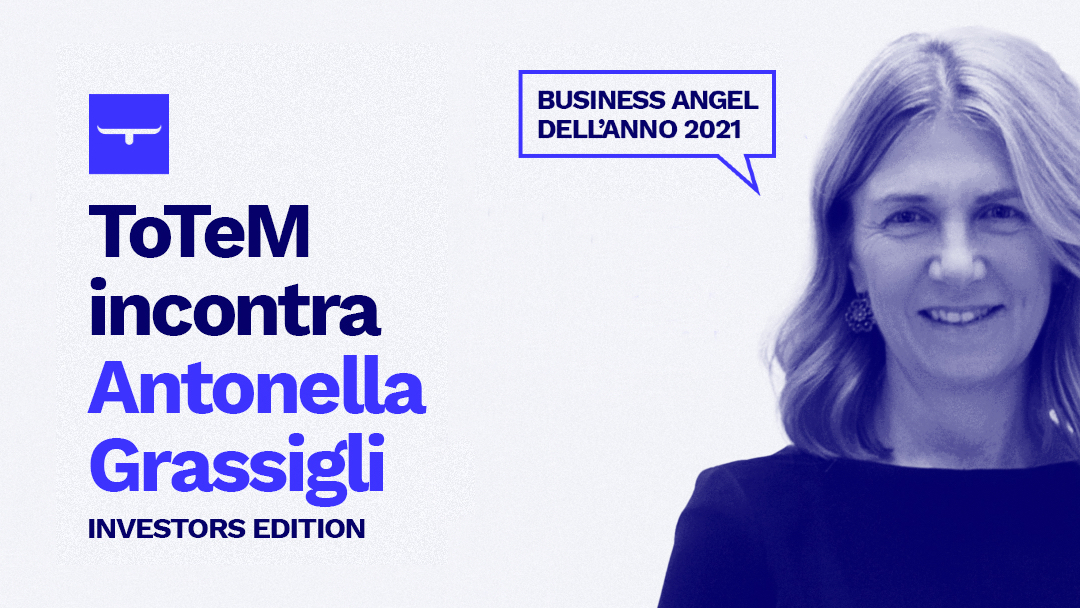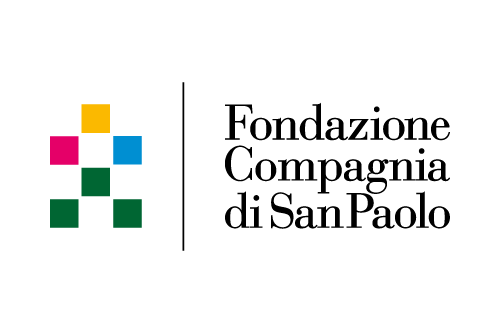Antonella Grassigli, CEO and Co-founder of Doorway Società Benefit, Angel Investor, IAG Partner and co-founder of Angels4Women. Certified Public Accountant and Auditor. At the end of 2021 she was appointed, by Club degli Investitori, Business Angel of the Year.
As an investor, how much is it really convenient to build a startup in Italy and why?
First of all, as a business angel and as an investor, I believe that investing in startups and in innovative companies is, today, the main economic driver of the country, even if in Italy we are still far behind on many aspects. In all the most advanced countries, the technology and growth results obtained by supporting the startup ecosystem, both internal and external, have been exponential in cases such as Israel, the United States or the United Kingdom. From a strategic policy point of view, this kind of investment must be there. The problem is that in Italy there is a lot of bureaucracy and therefore doing business is not easy because unlike other countries, even just establishing a business shows that we are not really an entrepreneur friendly country. This is why we entrepreneurs, and I say this in a conscious way since I am also an entrepreneur, are so good at exporting the fruits of our labor, because we have so many difficulties at home that when we come out somehow we see our resilience rewarded. Nonetheless, all this is slowly improving: we were the first, in Italy, to create specific legislation for startups and over time, in recent years, the public has also contributed with research centers, universities have dedicated teams, Cassa Depositi e Prestiti in recent years has invested a lot in supporting innovative companies. Therefore, it has been done because if it is true that we start with an important gap compared to other innovative countries, we are slowly filling it. In Italy, we have research centers of excellence, for example in Turin and Milan with the two polytechnic poles, and industrial districts on which to create very important open innovation, such as the automotive industry in Piedmont and Emilia-Romagna. These excellences also give rise to human resources, people who have very high skills on which a school of entrepreneurship must be grafted, which is perhaps what we lack most, because it is one thing to do research and another to do business from the results of research. From the investor's point of view, supporting companies offers a twofold advantage: on the economic side, investments in startups or venture capital tend to be those with the highest possibility of economic return, and then, from a more general and systemic point of view, investment in venture capital is what can make a country grow.
Recently there has been a heated debate on whether or not the notary should be involved in the incorporation of startups, trying to promote online incorporation, but this was ultimately precluded by a ruling that denied access to this simplified system.
This is one of the examples of the fact that the simplification of processes in our country is still very much opposed. Defeating the status quo, going against the advantage of a few to seek market liberalization is always something we struggle with. The example of the notaries was very symptomatic. They digitized the process eventually but the incorporation will still have to be done through a platform that is not open to the market but contracted out to a professional association. It is clear that the protection of legality is another thing, but in this way we saw that other players could be found that would mark a change of pace and an opening. There are so many small things that, together, mean that a newly established startup does not have an easy life. Doing business in this way is already difficult because in many cases you are working on business models that are not yet there, you are creating them from scratch and therefore you are already running the risk of following an idea that may not be right and on which you still have to pass the test of the market. If we add to all this a bureaucratic obstacle of this type, it is clear that we are generating a double burden. Moreover, in Italy we have a fundraising problem, we do not have easy access to funds and innovative entrepreneurs have to face long and complex processes to convince investors. It is not easy for us to have access to capital, unlike other countries, and without fundraising, we simply cannot grow.
But is it more of an institutional/legislative problem or are there also corporations, made up of large players that have already been in the market for decades, that tend to be protective of what they have created and to raise barriers to market entry?
From a legislative point of view, a lot has been done, so I don't think it is an institutional problem, in fact there are many facilitations. In my opinion it is more of a systemic problem, venture capital and entrepreneurship should be better supported from a political point of view. There are a number of enlightened entrepreneurs, such as those who are part of Club degli Investitori, who have understood that it is important to invest, but we are still minorities, we are not yet mainstream. It shouldn't be considered so naïve to do what we do. If you talk to large institutional investors or pension funds, many have a very biased attitude toward venture capital. There is a lack of a culture of investing at risk, we are the children of outdated concepts, of those who used to invest in BOTs in order to have secure returns at a fixed rate while always protecting their capital. In order to make capital grow, it is necessary to invest even at risk, because that is what makes the portfolio grow, but also makes a country grow, assets that safeguard capital do not drive growth. Something is changing, we are in a time when there are not so many investments that safeguard capital in which there are sometimes even negative rates and therefore, perhaps, this is a good time to make people understand that you have to invest in venture capital and review your risk appetite. This cultural change is the only way to have returns and to have a growth of the portfolio and also to give more trust to realities that may seem to be a gamble and help them to grow and be rooted.
So it's not just entrepreneurial education in the "startup crowd" that's needed, but also a new, more modern financial education towards those with more seniority and very entrenched biases...
Absolutely, Millennials are already used to this talk and adopting this point of view. When I talk to financial advisors or private bankers, I sense that they now know that you have to invest in private assets. When there will be a generational change in asset management, those who will make their clients understand that they have this approach and will also have investments in startups in their portfolios will certainly have greater appeal to a younger market. From my point of view, I see that things are changing, slowly but surely. Up until a few years ago, when we were talking about venture capital, it seemed like we were talking about a very narrow niche; instead, in 2021 alone, many VC funds were born. This shows that the interest is there, but for a real change of pace it is necessary to unite and set in motion the mechanism that puts in contact the push of the public, the involvement of private savings and the large corporations that do open innovation. If all this really starts to work as an ecosystem we will surely grow.
The annual research of the Club degli Investitori has shown that Turin, on the national scene, has a lot of potential, in part still unexpressed, to establish itself as an innovative center of excellence. What is still missing from the "magic formula" to make this ecosystem blossom definitively?
From my point of view as a non-Torinese, what I perceive is the need to be more closely tied to a concept of a national ecosystem rather than a local one. Turin is certainly an attractive center, it has great entrepreneurs and a rather high average wealth. What should be more perceptible to the outside world is a sort of sharing with other territories and other regions, an openness towards sharing what is the patrimony of knowledge so as not to be perceived as a closed and too self-referential system. I would like to talk about the Club, talk about the Polytechnic but in national terms and not only in Turin. The turning point to look for is to incubate all this ferment and attention that there is towards the city but to make it become a national hub and not perceived as a pole of attraction that, like a magnet, then holds back what it attracts. I am very hopeful because an opening is taking place that, even just a few years ago, did not exist. Turin is not "just Turin" but is something that is part of a larger ecosystem where there are many other cities and regions. We must work to cultivate this more common vision based on openness so that the city can become a hub from which to make innovation but also capable of radiating outwards the results of the efforts made and the value created. In this way it can be both a point of reference and an example to follow. Turin has many merits that can be used as leverage to open up, such as the presence of capital, companies, skills, human resources, plus an excellent logistical position in the middle of an interesting crossroads that connects Italy with foreign countries , and all these things are crucial to be perceived as a place of exchange and sharing of skills and growth. Innovation must also be diffused because we're talking about global markets, commodity and financial markets, and we tell startups to open up and internationalize, and so we need to keep ecosystems as open as possible to the outside world and not self-referential and entrenched in looking only inward.
Even the journalistic narration of innovation, which always somehow creates a ranking in which the results of Turin, Milan, Rome, Naples or other cities are compared, feeds a parochialism and a feeling of continuous chasing that is perhaps not good for innovation. It might be useful to make an effort to tell more about aggregate data, which rewards the efforts made by each city to contribute to a collective and shared result...
Innovation by its very nature must be shared in order to bring real benefits. We are already talking about Italy, which in its own way is a microsystem within a global system. Going even further to narrow the focus on scope and impact even more in detail, looking at individual cities, is nonsense. I was at the Web Summit in Lisbon, there I really had the feeling to have the vision of a whole made of a sharing of technologies and knowledge among people belonging to an open network. You don't need a geographic label to come from a given city or nation, but to innovate you have to consider yourself part of a global world, share and spread the achievements as much as possible.
What is the best way and time for a startup to present itself to an investor for the first time?
The best time, in my experience, is when you have an MVP ready and a minimum market traction to make the investor understand that the solution you propose is validated by the market at least by early adopters. Then it also depends on who the investor is that you are addressing, so first of all a startup has to understand which investor they are dealing with. If, for example, there is a business angel who is an expert and who can understand the stage of development of the startup and what traction it has, then he or she will invest, while without a convincing traction they would never invest. Therefore, the moment and the type of investor are two things that depend on each other: in the seed and early stage phase it is necessary to give a market traction to understand where you want to go, with what resources and that, as a reference market, you have not only looked at Italy but at least at Europe. And then it is important to present a credible team. In the seed or early stage phase, the investor is investing in people, that is, in the fact that the working group is able to bring the project to the ground, that it is able to change direction by making a pivot if necessary, that it has the right ambition and that it knows the direction in which it wants to go, knowing the way to go. There is a lot of focus at these stages on assessing the prospects for execution. So my advice is to get to know the investor, make it known that you have clear ideas and that you have the right team and resources to execute them.
What is the innovative sector that could grow fastest in the next five years in Italy?
In Italy definitely the fintech sector will have a monstrous push, because our financial institutions are still quite lagging behind on this so there is a need and search for innovative financial services, and then consequently everything that will enable blockchain technologies. The whole B2B is also very promising, so everything related to the digitization of business services: in the past years we all invested in B2C, on marketplaces and everything that was consumer-facing, now the trend is towards the digital transition of businesses, of any sector. In general, regardless of the sectors, this is the right time for our country to grow, we must have confidence because with the opportunities coming from the PNRR and with all the resources that are coming from Cassa Depositi e Prestiti is the right time to invest in innovation. I'm glad that many, almost all, seem to be understanding that the moment is right now. For startups and for those who want to get into this market, for those who have an innovative idea and want to do research, this is the right time to summon up the courage to jump in.









